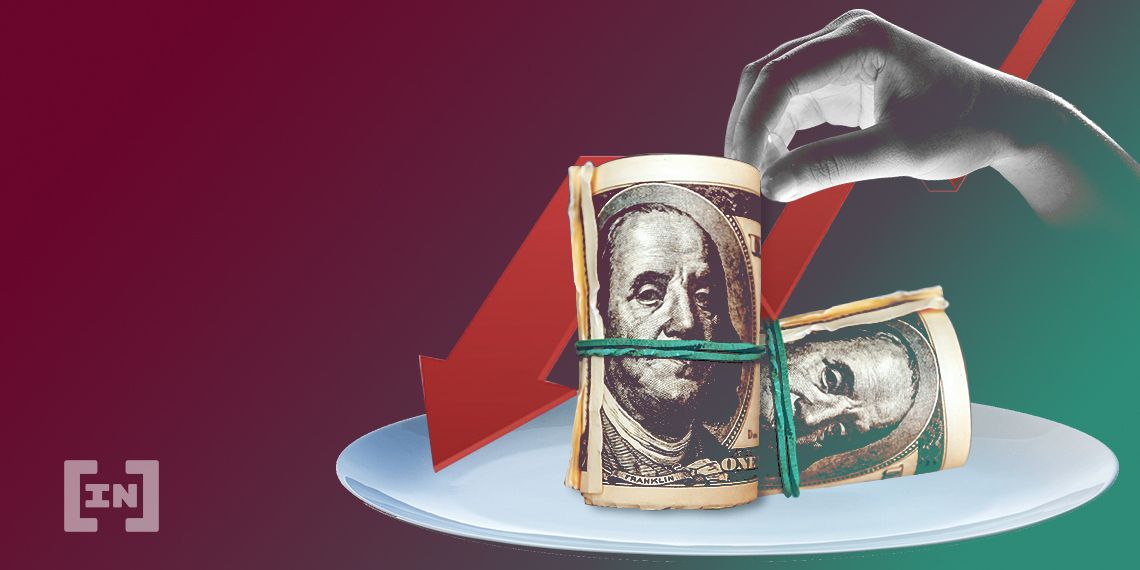There is a common saying: a rising tide raises all boats. Unfortunately, a rising tide can also flood them. Despite the big slowdown in energy costs and fuel oil, there is still a huge possibility of inflation facilitating the tide. Ultimately, unemployment continues to increase, business and personal bankruptcies have increased, electricity prices are at the highest level, and the dollar continues to weaken, fueling inflation fears.
Typically, inflation is everyone’s nightmare. Luckily, if you are in the workforce, inflation protection comes from those hard-earned pay raises. But once you have retired, you’re on your own, left alone with your investments and no boss to turn to. So, how do you position yourself and plan your retirement to profit whichever way the tide turns? Read on to explore different ways to manage retirement with inflation.
In this guide:
What is inflation?

Inflation is an economic term that depicts the rise in the average level of prices, causing a decline in your purchasing power. The average over time is usually about 3%, but it changes yearly.
The inflation rate is employed in several businesses and economic formulas, and the average rate by the Federal Reserve is usually around 2%, but this changes from time to time. Essentially, the inflation rate is determined by the consumer price index or CPI — monthly statistics of prices published by the U.S. government released every month. Other tools include the PCE Price Index used by the Federal Reserve.
On the surface, inflation makes everything you buy expensive. A dollar you kept under your mattress last year is still the same, but it doesn’t have the same purchasing power today. What happened? Inflation. However, there are cases whereby business owners intentionally inflate the price of products, but generally, the overall increase in goods and services is caused by inflation.
Given that inflation decreases the value of money over time, you must put your money to work and plan your finances properly to stay protected.
The impact of inflation on financial planning
Inflation and financial planning are simultaneously related in such a way that a well-detailed financial plan cannot be completed without considering inflation. It causes our purchasing power to decline and affects each sector in different ways.
Ultimately, inflation is a major bugbear for individuals with a fixed income and those with minimal risk appetite, including retirees with no wages. However, its impact rate depends on how well-prepared you are for it. If it’s well planned for, you can always alter your financial plan to compensate for the increased prices. Inflation has the most negative effect when it is unexpected.
Purchasing power
This is the worth of goods and services a unit of money can buy at a certain time. Inflation can affect your finances because a steady increase in the costs of goods can reduce the quantity/quality you can purchase.
For example, think about the price of goods five years ago. How many goods would $50 acquire then, compared to now? Generally, prices increase over time, so you should factor this into your financial plans. This is important because $50 won’t be much good in the next five years.
Understanding this will always prepare you for any future disaster inflation might present.
Savings
Ultimately, if your bank savings interest rate is less than the inflation rate, you will experience a negative return on your investment, and you will lose money.
For example, say your money is in a bank savings account paying the standard central bank interest of probably 2% per year, and the existing national inflation rate is 3.5% per year; your money is losing 1.5% of its buying power each year. However, if you invest your funds at a 3.5% interest rate, you break even, and your money retains its value.
Overall, the value of money is proportional to time. Therefore, your savings only get profitable when it’s invested at a rate higher than the normal inflation rate reported in your country during the same time your money was invested.
So, you should keep an eye on the rising inflation rate in your respective country and plan your finances accordingly.
How inflation affects your retirement plans

In retirement, the two main sources of monthly income are social security and pension. The truth is, whatever expenses are not covered by these sources must be made up by withdrawals. The rising inflation will cripple what you must withdraw to sustain your standard of living.
As inflation increases, the amount you’ll need to take out also increases, thereby making it difficult to afford basic human necessities. What this means is that inflation has a direct impact on how long your retirement earnings will sustain you.
Social security
Social security includes different benefits which the United States government gives to all its citizens. It essentially provides retirees with a fund that supports about 40% of their living costs. The average age range is usually between 62–67. And it’s widely known that the majority of these retirees depend on these funds.
However, the steady increase in inflation has been a major concern. Typically, 40% is not enough to meet the rising costs of living, with prices of goods getting expensive each day. As the costs of basic human needs soar, including medical care, food, etc., the government’s funds become inadequate for retirees. Statistics from The Senior Citizens League shows that social security benefits have lost 30% of buying power since 2000. Hence, the need for proper retirement planning.
Pensions
Pensions are one main way older people save for the future. Your money isn’t only invested for profit, but the government or your employer pay it for you. However, it’s crucial to note that these funds can still be affected by inflation, both in savings and investment.
For example, say you are getting an annual pension of $30,000, have $100,000 in pension savings, and could expect an annualized investment return of 5% on your balance. Then, using an online retirement calculator, let’s examine how many years your pension savings would last if inflation averaged 1%, 3%, or 5% over the course of your retirement.
Well, if inflation averaged 1%, your savings would last about seven years, and with a 3% average inflation rate, your pension savings would go to zero in about 4.5 years. However, with a 5% annual inflation rate, your savings would last only 3.5 years. But you should note that these values will vary according to your pension income.
However, it’s important to note that while some state and local governments cover the cost of living and adjust their pay to balance the inflation effects, private pensions do not cover living adjustments.
How will inflation affect my 401k or IRA?

When it comes to making effective retirement savings, one of the best decisions one can make is how to invest in a reliable retirement plan. Perhaps 401k/IRA plans top the most common list.
An IRA is a personal retirement account, while a 401k is pretty much the same, only that it is the professional term used by organizations offering it to their employees.
Typically, investing in a traditional IRA/401k account exempts you from being taxed. This means your investment keeps growing each year without taxation until you’re ready to take it out. However, when you reach retirement and are ready to receive your retirement payments, you get affected by rising inflation and taxes.
For example, if the current inflation rate is at 4% and your 401k ROI is 5%, your net profit will be 1%. On the other hand, if your 401k gives 3%, your net profit will be -1% resulting in a loss. So overall, this means to beat inflation, your investments have to be more robust. How long you want to keep your money in a 401k savings depends on how close you are to retirement and your investment strategy.
Here are a few different ways to protect your retirement funds against inflation.
7 Ways to Handle Retirement With Rising Inflation

1. Diversify your portfolio
To tackle rising inflation, you’ll need to boost your portfolio by investing in assets that can help you repel inflation and strengthen your purchasing power over time. For young investors, this will likely mean sticking with a stock-heavy portfolio, but for retirees, with a lesser risk appetite, it’s essential to look into inflation-protected assets such as commodities and bonds.
While diversifying your portfolio, align your risk to your long or short-term goals. For example, say you’re a 50-year-old woman with $50,000 invested in 401k and would like to spread it to increase your earnings for retirement. Then, you can decide to explore potential market opportunities for the remaining years until you are eligible for retirement withdrawals.
For instance, you might want to place about 40% of your portfolio into stock equities, as they present the most growth potential. Likewise, you can invest 30% in government bonds, 20% in cryptocurrency, and 10% in securities. As retirement gets nearer, you can increase your securities and reduce your equities to minimize your risk exposure.
Low-risk bonds counterbalance high-risk stock equities, and diversifying others into stock, commodities, and crypto counteracts any possible rising inflation or long-term crash of any particular industry.
2. Cut down some major expenses
If you’re on a fixed income, one of the secure ways to protect yourself from running short of money on emergencies during retirement is to spend less. So, it’s important to cut down on your spending habits and start saving more. Spending less doesn’t only save you from unnecessary emergencies during retirement; it’s literally the gateway to building wealth.
Generally, it’s so easy to spend money without actual budgeting. One great way to minimize your expenses is to use cash only, with a monthly limit. You can set about 5% of your monthly income in cash for personal needs. This includes things like eating out, entertainment, and miscellaneous. Take the cash out each week, and once you’ve exhausted the cash, you wait until another week. This will undoubtedly limit your spending habits and help you save more.
3. Consider relocating
Retirement is one of life’s biggest transitions. And it comes with a massive change that tends to affect every aspect of your life, including daily routines, personal goals, and your finances. Your monthly income — whether from a pension or social security investments — will most likely be reduced. Among other priorities, you will most likely need to reduce your living standard.
Most significantly, trying out another city with a lower inflation rate or lower standard of living will save you money. For example, if you stay in New York with a very high standard of living while on a $100,000 yearly salary, you might want to try out another city with lower living costs since your income will most likely get reduced. Doing this will save money on utility bills, energy, and food costs.
4. Do an in-depth budget analysis

It is always important to know your financial status and never exceed your budget. When you are retired or close to retirement, doing an intensive budget analysis becomes very important. In most cases, as a retiree, you do not have many income sources, so you have to strategize when it comes to budgeting. You do not have to cripple your living standard completely, but some adjustments need to be made.
An in-depth budget analysis includes examining the littlest activity, like expenses. First, categorize into fixed and variable expenses and then take the necessary actions.
In addition, you examine your insurance policies. You must determine if you still need life insurance and make proper adjustments to the coverage. If you have life insurance, extend the availability period.
Likewise, when you retire, money from your retirement account, try to stick within limits approved by the IRA so that your remaining savings can build cash actual value. This also means that you will declare less income, so you can invest or save money against taxes and inflation.
5. Consider delaying social security payments
As mentioned, the concept of social security benefits is simple, you work a fixed number of years and contribute to the system. Then the government provides you with a monthly retirement benefit. However, these benefits are not fixed; there are ways to maximize your earnings if you strategize well.
Ultimately, filing for social security as early as age 62 reduces your benefit. Your full benefits come at your full retirement age, usually 66–67 or 70. The rule of thumb is that the longer you delay, the more benefit you accrue. The idea is that you earn more every month if you delay benefits because you are expected to have a shorter time to collect.
For example, say that your payout at full retirement age is $1,666/month, the average benefit in 2022. If you retired at age 62 in 2022, you would receive 75% of that or about $1249/month.
What happens when you wait until age 67 (the year 2027) to collect? Notably, these benefits are adjusted with inflation each year. So at age 67, you would not start with a $1666/month benefit because that applied to 2022, and during the five years waiting period, the base benefit would be increased for inflation.
This essentially breaks even because it would help you counterbalance a higher cost of living.
6. Estimate your retirement income needs

To accurately estimate your retirement income needs and prepare for inflation, you’ll have to take some additional steps and do some calculations.
For instance, the cost of living is bound to increase over time, as the average inflation rate between 1960 and 2021 has been 3.8% per year. And your retirement expenses may change annually.
So, it’s important to prioritize some variable costs, such as health care and insurance. To prepare for these variables, create a flexible cushion for your calculations (it’s good to be conservative).
7. Plan health costs
You want to avoid living your retirement years moving from one hospital to another, paying for what could have been sorted out since. The importance of planning for health costs and opting for insurance cannot be overemphasized. For example, if you have an underlying health condition or even need to check your daily sugar level, you may have to keep spending money each day.
How do you want to beat this if you are low on savings with your fixed income while on retirement? Insurance plan. By opting for health care insurance, you can overcome your financial burden to a very great extent.
Some insurance coverage can protect against inflation — for example, Medicare and Indemnity Health plans. You can explore the best option and protect your savings from the huge health costs later in life.
Why do you need to plan your retirement against inflation?
Imagine the architecture of your building: there’s a foundation, a roof, and siding. Now imagine your financial plan as being composed of these important parts. These pieces can be your assets, liabilities, investments, and your savings. By considering your savings and planning ahead for your retirements with the above-listed methods, you can protect yourself from lower purchasing power caused by inflation and enjoy your retirement life confidently.
This is not financial advice. Do your own research before making an investment or taking any investment-related decisions!
To learn more about investments, inflation, and many other important financial topics, head over to the BeInCrypto Telegram Group. There are several friendly members who will be happy to explain everything to you.
Frequently asked questions
How does inflation affect retirement?
The average inflation rate is said to be around 2%. This means a retiree on a fixed income would need more money to maintain their buying power over time.
Do retired people benefit from inflation?
Inflation mostly affects retirees by devaluing their savings and reducing their purchasing power. This increases their standard of living, thereby affecting them negatively.
How can I protect my retirement from inflation?
Investing in inflation-protected bonds can also be a less risky means to protect your funds from inflation. Other means include diversifying your portfolio as well as cutting down on your expenses.
How much should your inflation plan be for retirement?
Typically, you can prepare for an annual inflation rate of around 3% to stay on the safer side.
Why is inflation hard for the retired?
Retirees are mostly on a fixed income; hence, inflation affects them the most by diminishing their buying power and affecting their living standards.
What will inflation do to your 401 K?
During inflation, goods get really expensive. And for retirees on 401k or IRA savings, long-term inflation can cripple their investments as stocks, and other investments do not get protected from inflation.


